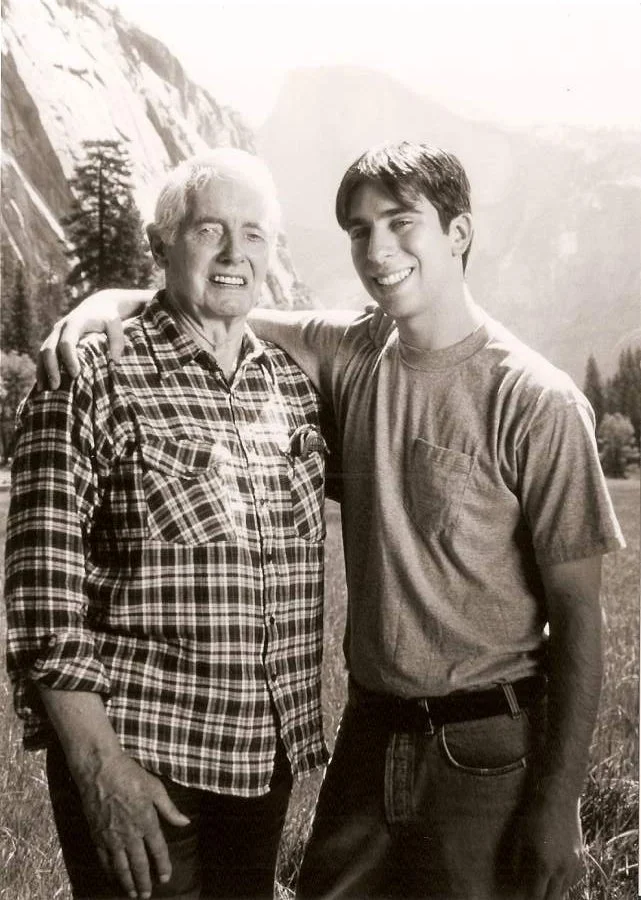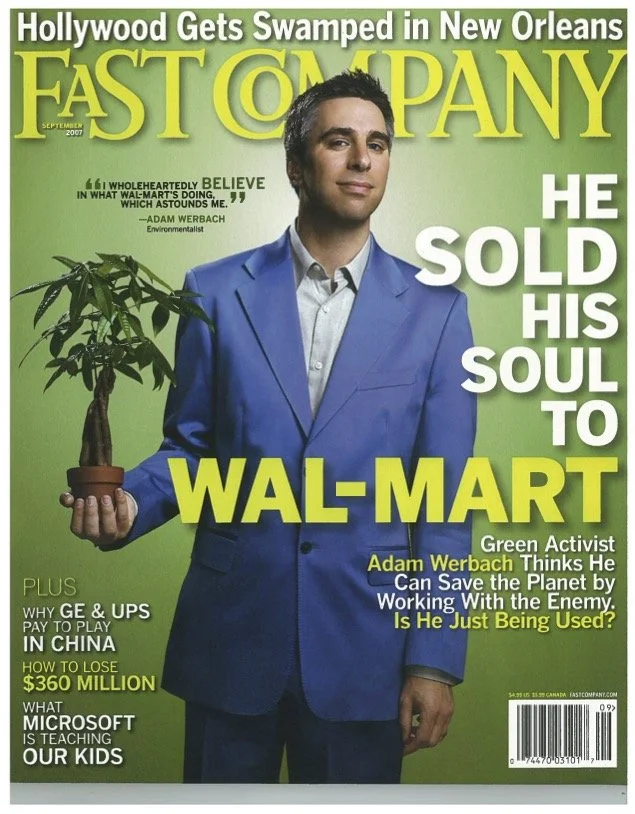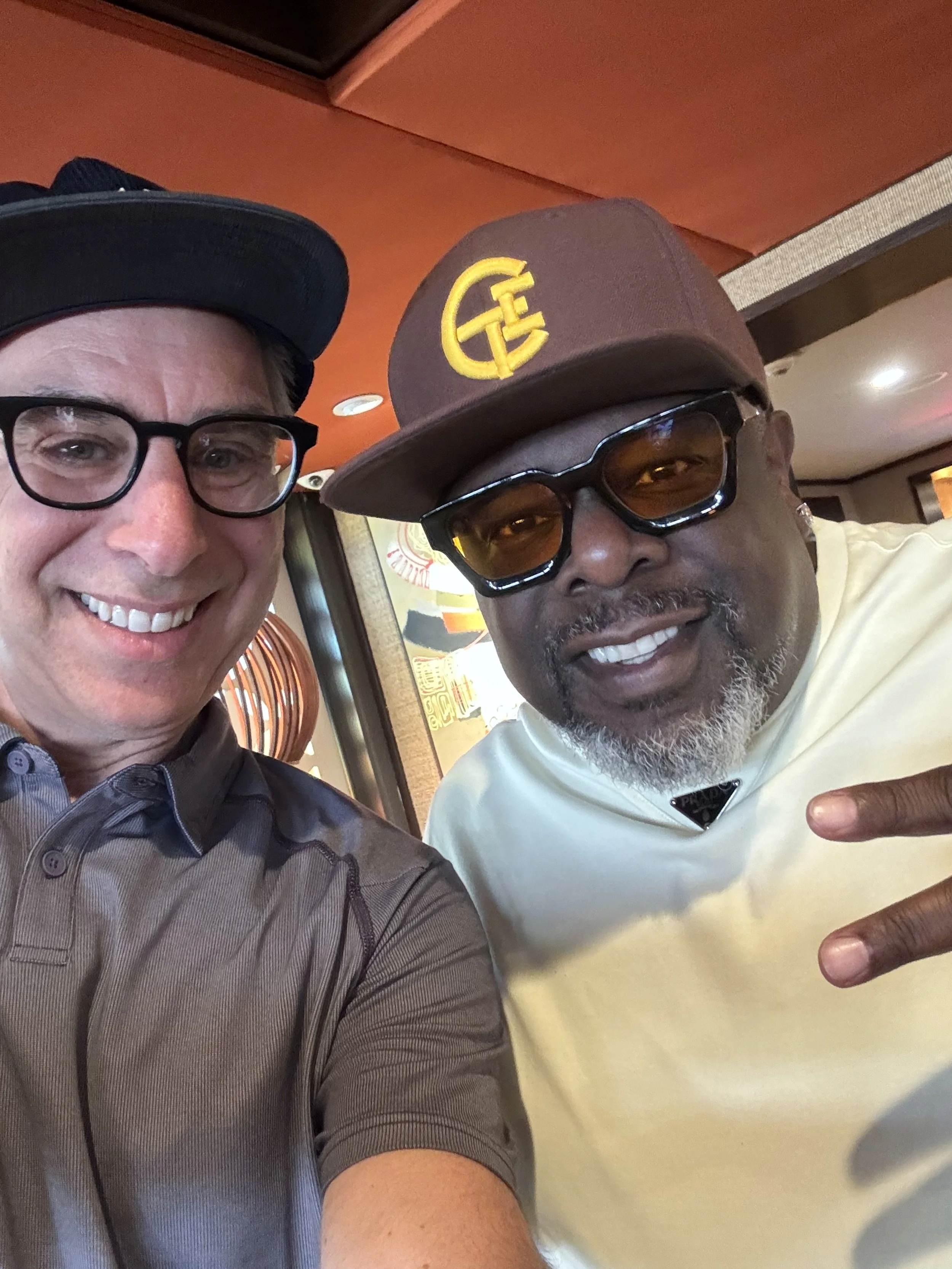Adam Werbach S’90: Iconoclasts and Idealists Find Home in Rural Vermont
Adam Werbach never believed in the status quo. After a semester at TMS, he felt ready for anything, including reimagining entire industries.
Adam Werbach is a business leader and sustainability advocate with a career spanning senior roles in e-commerce, marketing, and public policy. At age 23 he was elected the national President of the Sierra Club. His professional career has ranged from helping Walmart and Amazon launch sustainability efforts, to starting up Trove Recommerce and Saatchi & Saatchi’s sustainable marketing division. Werbach is a frequent contributor to the Atlantic and author of two books, Act Now, Apologize Later and Strategy for Sustainability: A Business Manifesto. Not one to be pigeonholed, Adam currently develops new entertainment projects through Kapital Entertainment.
Lucretia Penfield (TMS’s Director of Admissions, Enrollment, and Financial Aid) talked with Adam to learn how his time at the Mountain School shaped his views on what’s possible when it comes to sustainability and innovation.
“TMS gave me the belief that I could do anything. I had this sort of subversive view during my early years of high school, but the Mountain School made me more of an activist. I became the president of the Sierra Club at age 23, the youngest president ever elected. TMS made me believe I could do something ridiculous like that.”
How did you become interested in the Mountain School?
I grew up in Los Angeles and attended Harvard-Westlake. The head of the Mountain School came in December to build a relationship with our school. I hadn’t heard of the school but there were faculty at Harvard-Westlake who thought I would thrive there in a way I wasn’t thriving at my home school. I was somewhat of an iconoclast and liked to challenge authority. I didn’t just accept the way things were. This opportunity resonated with me. In January, I was starting at the Mountain School.
When I got to the Mountain School, I had a lot to learn. I had never been in snow, let alone on a farm. I didn’t know what to do with myself and I had never been in such a serious academic environment. At home, everything had been easy for me, I hadn’t had to try that hard to succeed in my classes. Now, being in a place where the expectations of the teachers and other students were that I worked hard in every respect really upped my expectations for myself. For example, if you were on the Chickens Chore, you were going down and breaking the ice on the chickens’ water. When it got really cold, you were collecting any carcasses of chickens that had been frozen. And after that, you’re finishing your homework, all before breakfast.
I had always had it relatively easy. After class on the first day I grabbed a frisbee and said, “let’s go hang out!” But my classmates said, “Yeah, we have to do our homework first.” It was such a committed group of people.
When you went back to Harvard-Westlake, how were you different?
When I got back to California, I felt that I could do anything. I knew how to pick up dead chickens, I had done a three-day Solo camping trip, I knew how to orient myself with a compass, I had gone cross-country skiing with Bill McKibben, who had just written a book I had read. I had read a book by David Brower, and then I wrote him a letter, and then I met him. These people were very important professional influences and mentors to me, and I had a chance to work with them very rewardingly over the next decades. But being recognized for my ideas by these inspiring thought leaders gave me confidence in myself.
“Before TMS I was someone with a lot of ambition and drive and desire, but not a lot of experience. After the semester, I suddenly found myself pushed up against real challenges. It totally calibrated my way of looking at challenges in the future. In the end it made me feel even more confident that I could take on different challenges. If I could survive overnight alone, what couldn’t I do?”
What were your most meaningful experiences at the Mountain School?
What jumps out at me as I look back are these memories:
Sleeping in the barn when the baby lambs were being born.
Being on Wood Crew and how long it took to prep and drag all those trees. When we felt sorry for ourselves, I remember Jack Kruse told the story of a professor who was retiring, who every day dragged one piece of wood from a woodpile back to where the boilers were. Over the course of a semester, he moved a ginormous wood pile all by himself.
I remember having an essay that was 8 pages, then being challenged to write it in 4 pages, then 2 pages, then one page. I recall letting go of all those turns of phrase I thought were so precious and homing in on what I really wanted to say.
How have the skills and experiences you got at TMS shaped your career?
TMS gave me the belief that I could do anything. I had this sort of subversive view during my early years of high school, but the Mountain School made me more of an activist. I became the president of the Sierra Club at age 23, the youngest president ever elected. TMS made me believe I could do something ridiculous like that. I believed I could start a television production company, which I did. I believed I could help Walmart be more sustainable. After that I worked in advertising and tech… my career has been very wide in its scope because I’m interested in finding ways to make change that have lots of scale. In 2010 I received a Hall of Achievement Induction from the American Advertising Federation. How could an environmentalist who has spent their career railing against buying useless crap achieve that?
It’s because the Mountain School made me believe in myself. Eventually I got frustrated of the limits of working with big companies like Walmart, of people buying new stuff, even it was a little more sustainable. I wondered, “Why don’t we just get the things that are in the back of our friend’s closets?” So I started the tech company Trove. It’s a very Mountain School idea, “Why don’t we just use things other people aren’t using?” We raised $100 million dollars to do it. That amount of money being invested in a new idea is outrageous, but TMS made me believe that I could pull off new ideas of this scope. Today 86% of all branded resale goes through Trove, so if you buy something used from Patagonia or REI, or Lululemon or Carhartt it’s powered by Trove. It now seems so obvious to buy used items from the companies who made them, but we were laughed at for a long time before it became common sense.
How does the mentality of environmentalism help you succeed in another field, like marketing or entertainment?
It’s the understanding of activism. If things are unacceptable, then change them, if there’s a lever for change, pull it. I learned organizing from books by Cesar Chavez or Highlander Institute and I’ve gone and used those skills in other places. For example, I think environmentalists do a terrible job of storytelling, so I’m committed to figuring out how to tell a story that resonates with everyone. I'm producing a television show right now that has nothing to do with the environment—but I’m using those same skills in a new arena, with the illogical belief that I’ll figure it out.
I think Mountain School attracts people who have that. For me I always had a very high sense of connection to environment, sustainability. White dudes who believe they can do anything are not that hard to find, but people who have a sense of moral mission and higher purpose, that is something the Mountain School helps mint.
When I hire people I look for people who both learn really fast and manage complex situations, and for people who can hold a moral mindset while they work. I look for Mountain School type thinkers.
I think Mountain School cultivates moral mission and higher purpose at the tiniest level. For me it wasn’t preaching about the importance of the earth, it was walking into the forest and seeing the remnants of an old road. It is seeing how the branches of a tree are cut off in one area and realizing, “Oh, there was a road there before.” Perceiving a stone wall, really looking at the nature around me made me fall in love with the natural world.
As someone who lives and works in the tech sphere, what is your perspective on the fact that students at TMS don’t have their phones during the semester?
What an amazing gift.
If you were going to offer perspective or advice to parents or students…
The Mountain School will give you an outlook that makes your perception and sense of agency sharper. The school can’t tell you how to reach the particular goal you have in mind right now, but it will prepare you for the goals that you will set for yourself.
For me, before TMS I was someone with a lot of ambition and drive and desire, but not a lot of experience. After the semester, I suddenly found myself pushed up against real challenges. It totally calibrated my way of looking at challenges in the future. In the end it made me feel even more confident that I could take on different challenges. If I could survive overnight alone, what couldn’t I do? Perhaps this time in nature is a strange prerequisite for a startup founder, but it gave me a sense of confidence.
In addition, group work, that deep sense of collaboration you get when you work closely with others to keep the farm and forest working, that’s a lot of what I foster in successful teams now. I get small groups of people together to solve a seemingly impossible problem. We can’t work well together unless we build trust, align on a shared definition of a problem, and embrace working together. You’ll experience that at the Mountain School and eventually be asked to organize yourself and your peers to work in this way.
Final thoughts?
The Mountain School was the most meaningful educational experience that I had. Even though I haven’t farmed since or taken care of animals, the tools and skills in collaboration and incisive thinking were central to my future successes. The school gave a sense of direction to the iconoclastic energy I already had.





